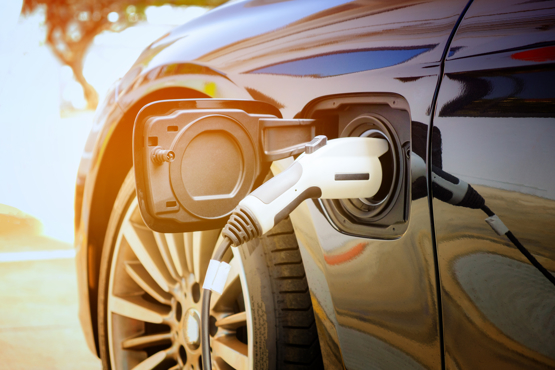
The move today by the UK prime minister to delay banning the sale of new petrol and diesel cars by five years will undermine consumer confidence at a time when car buyers, dealerships and manufacturers need clarity and support to make the best investment decisions, according to the UK motor industry.
Prime Minister Rishi Sunak announced today that he was pushing back the ban on the sale of new petrol and diesel cars in the UK from 2030 to 2035, saying that he still expects that by 2030 “the vast majority” of cars will be electric, because of improving technology.
Ian Plummer, commercial director of Auto Trader, commented:“Pushing back the 2030 ban on new petrol and diesel sales by five years is a hugely retrograde step which puts politics ahead of net zero goals. This U-turn will cause a huge headache for manufacturers, who are crying out for clarity and consistency, and it is hardly going to encourage the vast majority of drivers who are yet to buy an electric car to make the switch. Rather than grasp the challenge and use the tax system to ease concerns over affordability, the Prime Minister has taken the easy option with one eye on polling day.”
Sally Foote, UK managing director at online marketplace carwow, said: ““The decision to push the ban back by five years will leave many feeling frustrated, and calling for clarity, support and an assurance that the goalposts won’t move again.
“Manufacturers and motorists alike have been making huge changes since the government set out its target to phase out new petrol and diesel vehicles by 2030. The announcement fails to provide much-needed clarity regarding the new Zero Emission Vehicles mandate, which would levy huge fines on vehicle makers who fail to ensure at least 22% of their new car sales and 10% of new vans are zero emissions in 2024.
“All this positive progress as we transition towards electric vehicles risks being undermined by today’s announcement, which could send the message that going green isn’t that important. It’s also hard for industry and consumers to be sure there won’t be further changes. At a time when we’re all adjusting to new policies like the expansion of clean air zones across the country, this decision only adds further confusion when greater stability is what’s needed.”
EV expert David Martell, owner of British home charging companies Andersen EV and EVIOS, added that the move by the government to postpone ending the sale of new petrol and diesel cars from 2030 was a ‘truly retrogressive step and entirely counter-productive’. “It obviously won’t be good for the environment, will likely confuse potential car buyers, and it will discourage inward investment in the UK by green-tech businesses.
“The motor industry has been gearing up for the 2030 deadline since it was announced by the Conservative government three years ago, and the message from carmakers is clear – we cannot delay. For the sake of the economy today and the environment in future years, we need a clear commitment and better policies to make the transition happen. No one is served by simply kicking the can down the road.”
Philip Nothard, insight and strategy director, Cox Automotive, said: “The ICE-ban deadline is only one factor influencing the high-speed transition to EVs. For example, the Zero Emissions Vehicle (ZEV) mandate, which comes into force next year and initially obliges manufacturers to ensure at least a fifth of the cars it sells are zero emission models, is arguably a greater influence and is at least aligned with Europe. Of greater concern right now is the UK government’s ambiguity and refusal to engage in any meaningful discussion about what it must do to encourage and accelerate the shift towards clean transportation. Incentives, investment and commitment are desperately needed, today’s news only serves to strangle progression on this further still.”
Dylan Setterfield, head of forecast strategy at cap hpi, said the government’s Road To Zero strategy is now shrouded in uncertainty, with the ban on sales of new internal combustion engine (ICE) cars to be delayed until 2035.
He said the cap hpi view for some time has been that the deadline for ending the sales of new ICE cars would be pushed out to 2035, in line with the rest of Europe, albeit with the action expected to be taken after the next general election. Its five-year forecast outlook currently runs to 2028, so cap hpi was not yet factoring in any short-term impact on battery electric vehicles (BEV) – or even ICE – in the immediate run-up to the phasing out of new ICE cars.
Setterfield added: “I’m not sure it makes any difference to anything. We always said that 2030 was a very ambitious target and required significant action and forward planning to make it happen. Although there has been significant progress in infrastructure development, we think we are behind the BEV penetration required to naturally reach 100% BEV being a reality by 2030 without huge intervention.
“Our assumption had been that the ICE ban would be extended to 2035 by the next UK government, regardless of which party or parties would be in power, with the new incumbents blaming the current administration for not making sufficient progress to meet the 2030 target. Even if the 2030 deadline remains unchanged for passenger cars, we could see changes to the timetable for LCV, or the majority of hybrid vehicles allowed until 2035.”
- SEO Powered Content & PR Distribution. Get Amplified Today.
- PlatoData.Network Vertical Generative Ai. Empower Yourself. Access Here.
- PlatoAiStream. Web3 Intelligence. Knowledge Amplified. Access Here.
- PlatoESG. Carbon, CleanTech, Energy, Environment, Solar, Waste Management. Access Here.
- PlatoHealth. Biotech and Clinical Trials Intelligence. Access Here.
- Source: https://www.am-online.com/news/manufacturer/2023/09/20/uk-industry-rocked-by-decision-to-push-back-2030-ban-on-new-petrol-and-diesel-cars



